Ever since Scottish novelist/playwright J.M.
Barrie's Peter Pan first appeared over a hundred years ago, the
play and novel became source material for a slew of retellings. No
wonder, it's a classic story about a boy who flies, doesn't grow up, has
his gang of "lost boys" and lives in place called Neverland.
Yes, something about Barrie's story continues
to inspire. Who would believe that this character had become so
archetypal that it spawned such a slew of variations and reworkings
from Broadway shows, to cartoons and live-action versions?
Now comes British director Joe Wright's Pan,
an attempt, through a wholly original live-action adventure, to lend
Barrie's beloved characters an origin story. In this telling,
12-year-old Peter (Levi Miller), who has an irrepressible rebellious
streak, hopes to escape the bleak London orphanage where he's lived his
whole life culminating in surviving the bombing of Britain at the
start of World War II.
While trying to uncover the secret of a mother
who apparently abandoned him in that place, Peter is suddenly spirited
away in a flying galleon, speeding him and his fellow orphans to
Neverland a fantastical world of pirates, warriors and fairies.
Ultimately teamed with reluctant friend James Hook (Garrett Hedlund),
and warrior Tiger Lily (Rooney Mara), Peter must defeat ruthless pirate
leader Blackbeard (Hugh Jackman) to save Neverland and comprehend his
destiny to fly and become the hero known as Peter Pan.
Wright and screenwriter Jason Fuchs take
incredible liberties with the original story, its context and imagery
both the serve a contemporary audience and fulfill the visual outrageous
ideas that suits its 3-D dramatics. Despite some controversies for
example, the casting of Rooney Mara rather than a native American and
the dread of stalwart fans in seeing many liberties taken with the
story's visual and dramatic elements the film has an energy all its
own.
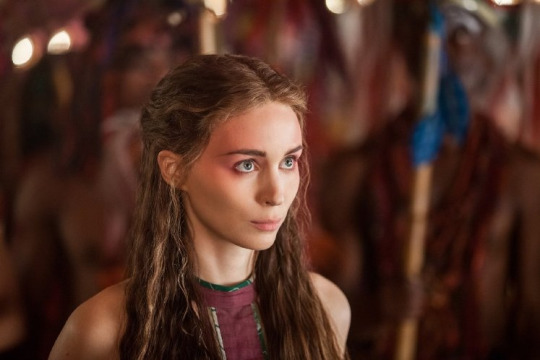 There's a strong undercurrent of punkiness to
the pirates' culture and a brutal side to the tribe that protects the
faeries. As to the faeires they're not all sweetness and light as in
the Disney version. They can turn into a stinging swarm of berserkers
who throw pirates to their death. This isn't your mom, or dad's, or even
grandparents' Peter Pan, by any means. Even though audiences may
not get past its oddness, at least Wright gave it an multi-layered shot.
There's a strong undercurrent of punkiness to
the pirates' culture and a brutal side to the tribe that protects the
faeries. As to the faeires they're not all sweetness and light as in
the Disney version. They can turn into a stinging swarm of berserkers
who throw pirates to their death. This isn't your mom, or dad's, or even
grandparents' Peter Pan, by any means. Even though audiences may
not get past its oddness, at least Wright gave it an multi-layered shot.
As for casting, it was a master stroke putting
together The X-Men's Wolverine and On the Road's Dean
Moriarty with Elisabeth Salander The Girl with The Dragon Tattoo
at least those characters' simulacra all in one film. Each of these
veteran actors employed the same instincts that drove those other
characters to give life to these outlandish ones in this film.
Then there's 45-year-old Joe Wright himself.
He's the English director known for such period films as the romantic
dramas Pride & Prejudice and Atonement, the action
thriller Hanna and his gorgeous adaptation of the classic Anna
Karenina. For another director, making this Pan might be a
stretch, but with Wright having already made those other films, it seems
a natural step to fashion this elaborate and outrageous fantasy.
So there we were, a bunch of journalists and
the director, writer and the three cast members in New York throwing
around a touch of the snark and fantasy at a press conference held in
the Conrad Hotel a couple of weeks before the film's release.
Jason,
you wrote this. Why this story? Who is Peter Pan and what is it like
being a Lost Boy?
Jason
Fuchs:
I've been pretty obsessed with Peter Pan from a young age. I got
stuck on a Peter Pan amusement park ride with my dad when I was nine. We
were up in a miniature flying pirate ship over London for about a half
hour. I got really curious about where he came from and how he flew and
where Neverland was. So, for about 20 years, I was fascinated by this;
20 years later I'm sitting here.
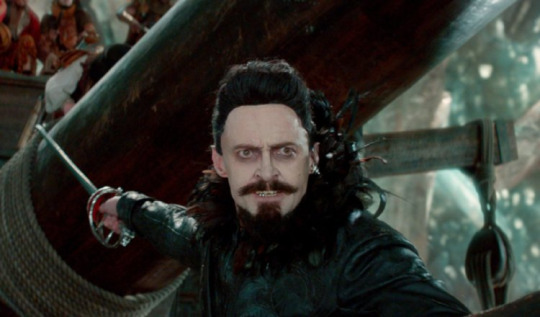 Hugh,
what did your kids think about you doing this movie?
Hugh,
what did your kids think about you doing this movie?
Hugh
Jackman:
My kids love it. [They] are 15 and 10 and brutally honest; they went,
"Oh, we actually really like this one!" "Oh yeah? What are you saying?"
The ultimate compliment was when they said, "Can we have another
screening? We want to bring our friends." That's when I knew they really
loved it.
How did
you get into this character?
Hugh
Jackman:
I always wanted to play a role like this, in a world like this.
Swashbuckling, sword-fighting pirates. I loved it. As soon as I knew Joe
Wright was on board, I jumped in. I actually did a bit of research about
the real Blackbeard and he was kind of amazing. I told Joe, "Blackbeard
would take incense sticks and glue them to his beard while going into
battle so it looked like his head was on fire." I asked Joe what he
thought of that and he said, "Hmm, I was thinking of something a little
different." He had my face on his iPad with white cracked makeup, the
Marie Antoinette wig and the costume of Louis the XIV. From then on, 90%
of the characterization was from Joe and the hair and makeup department.
They had better ideas than me. Everyday I felt like 80% of my work was
done by these over-the-top costumes and ruffles and feathers.
Rooney,
how did you create your Tiger Lily?
Rooney
Mara:
It's like what Hugh said, a lot of it was done for us. We had an amazing
script. We had Joe. We had an amazing hair and makeup team. I really
spent a lot of time with the stunt department learning how to fight so I
could stand up to Hugh, who's just good at everything he does. It took a
lot of really hard work to be able to come off as somewhat good at
fighting. We were lucky enough that we got a good amount of rehearsal
time and the three of us spending a lot of time together, That was
really helpful.
As a
former child actor, what do you do to stay out of trouble?
Rooney
Mara:
I've seen lots of child actors go off the rails and I don't really want
to do that.
What do
you think about the internet being this new Wonderland that people can
escape to?
Rooney
Mara:
There's lot of ways about [getting to] Neverland. I don't really know...
Hugh
Jackman:
Well, there are two of us on this panel who are parents. The internet is
something I didn't have as a child, and ultimately it's an incredible
tool. You can have any question answered, you can follow down any road
you're curious. I have to tell you, yesterday around 4 o'clock I went
into my daughter's room it was her day off from school and she was
playing with her dolls and dollhouse and pretending. Please don't tell
her I'm telling this story, but nothing is really going to replace the
imagination.
As Joe beautifully puts it in the movie,
Neverland is the world of the child's imagination. The whole movie is
seen from the view of an 11-year-old. Nothing is going to replace the
limitlessness of our imagination. Sure, the internet is able to answer
questions and you can go places you have never gone, but nothing
replaces the vastness of the imagination. As an adult, what I love about
this movie, is that it makes me feel [like] that 11-year-old again.
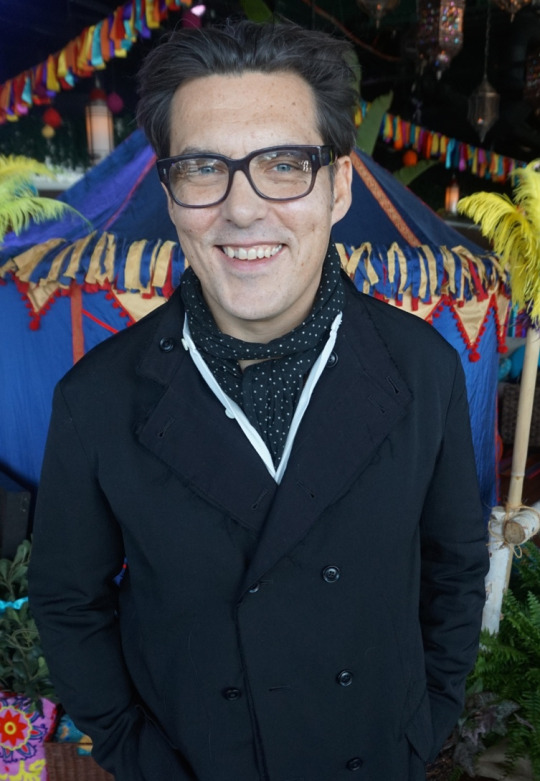 Joe,
you're "introducing" Levi. Why did you decide to do that?
Joe,
you're "introducing" Levi. Why did you decide to do that?
Joe
Wright:
Because that's exactly what we're doing. We saw over 4,000 videotaped
auditions and it felt like very hard work. Suddenly Levi's face popped
up and it felt like a radiant, wonderful talent. I hope the world will
be as thrilled as we were.
Garrett,
you and Levi got off easy because your costumes weren't that
complicated, but Hugh and Rooney, that wasn't the case by far; how did
your costumes help transform you into your characters?
Garrett
Hedlund:
I know mine wasn't as complicated as theirs, but it became complicated
when rear of my pants ripped. Maybe I was wearing drawers or maybe I
wasn't. But we had to stitch them.
Hugh
Jackman:
For me, massively. The moment you see Blackbeard in mirrors being
dressed, and by the way, on this movie I had to be dressed. On every
film you get a dresser and I'm like, "I think I can put on jeans," but
for this movie I was like, "I think we need an extra person in
here." There were layers upon layers. Beautifully handmade boots. It was
astonishing. The moment I put it on I felt like a show pony, like a
pirate that loves playing Blackbeard. He loves being Blackbeard, he
loves all the pomp and ceremony of it and the adoration.
Rooney
Mara:
I think costumes are one of the most helpful things for getting into
character. My costume was incredible. It was inspired by Joe's son who's
obsessed with belly buttons. It sounded like a cute idea: "Oh yeah, I'll
wear a midriff." Two months later I'm like, "Why did I fucking do this?"
It was really hard to fight in my costume because there were so many
things dangling everywhere. It was hard to hide padding or harnesses
under it. It was an incredible costume, but by week four I was ready to
burn it.
As for
the music you used in those big pirate ensemble scenes in the mine and
on Blackbeard's flagship I've never heard a rendition of Nirvana's
"Smells Like Teen Spirit" or The Ramones' "Blitzkrieg Bop" done quite
like that. How did that come about?
Hugh
Jackman:
As for the songs, that was Joe's idea. It was not something I read in
the script. I remember when we were trying it out there were some Warner
Bros executives visiting rehearsals. I heard them as they went by and
they said, "I didn't know we were doing a musical." Joe was like, "Let's
try it." That was the atmosphere on set. We all filmed it with a lot of
stomping, and the pirates had to go back in and record our vocals. So
near the end of the shoot we were at the London recording studio and one
by one we'd go in and record. I recorded my track and from the sound
booth a very polite sound guy goes, "Mr. Jackman, that was fantastic,
but it's sounding a little Broadway." [Hugh sings a little rendition of
his Broadway-esque version.]
Why the
music?
Joe
Wright:
It was just an idea. We had a hilarious week of pirate boot camp where
all the actors... It's amazing how actors jump at the idea of playing
pirates, fully grown tough men, and they're going "yeah, I'll wear an
eyepatch." So we had the boot camp and I wanted to find some music that
was right for the energy for them. We tried some sea shanties and they
didn't quite feel tough enough, then we tried some punk and the energy
in the room changed and everyone started pogoing around. So I thought
we'd give it a go.
What was
behind changing the time period? How did that open up things,
story-wise? How did it help the actors come into their own?
Joe
Wright:
The time period of Neverland is non-specific. I liked the idea of
Neverland as a place where all time periods can collide. So you can have
Elizabethan costumes, 1930s costumes, and The Ramones. Jason can explain
more about the setting at the beginning of the movie in the Second World
War.
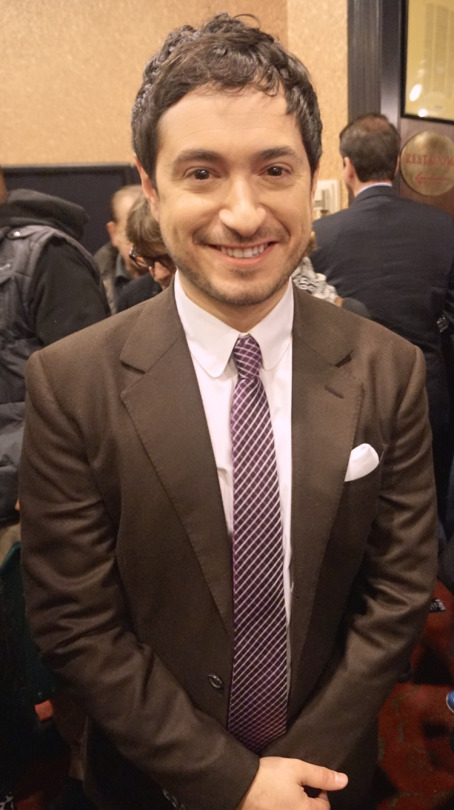 Jason
Fuchs:
I wanted it to feel like Peter was really escaping from something, so in
the original book it was set just around the turn of the 20th century,
but I thought if we set it during WW II, it would heighten the
desperation of a kid that wants to imagine a very different world. The
second reason was that I really wanted to see pirate ships fighting
spitfire planes. Selfishly, I thought that would be a cool sequence and
in Joe's hands, it was pretty spectacular.
Jason
Fuchs:
I wanted it to feel like Peter was really escaping from something, so in
the original book it was set just around the turn of the 20th century,
but I thought if we set it during WW II, it would heighten the
desperation of a kid that wants to imagine a very different world. The
second reason was that I really wanted to see pirate ships fighting
spitfire planes. Selfishly, I thought that would be a cool sequence and
in Joe's hands, it was pretty spectacular.
Garrett
Hedlund:
When I first met with Joe, I was reading this origin story of Hook, and
it's not necessarily the version everybody knows and loves; in this
version, Peter and Hook are allies, so it's an interesting take. I met
with Joe to see how he saw Hook and he said he saw Hook as a character
out of an early John Ford film; if he wasn't in Neverland, he'd be happy
in the prairie on a horse. It was a new spin on Blackbeard and that was
super interesting.
Hugh
Jackman:
It was freedom to play. I assume for Jason, he took this idea and ran
with it. I'm the one actor here who's playing a character that's fresh
to it. There's a reference here, a cool link there, you can see the ways
Joe and Garrett and I try to link things. In terms of the time period,
Neverland is in your imagination, so anything is possible.
What was
the most challenging or fun aspect of making the movie?
Rooney
Mara:
For me
the most challenging part was the fight with Hugh. We shot that fight
for four weeks and we practiced it way longer than that. It was my first
time doing anything remotely like that and Hugh is an incredible
fighter. He does stunts. He's a dancer, so Hugh is used to picking up
choreography. We'd be rehearsing this over and over and he'd pick it up
so fast. He would literally just keep going and going and going. He
never got tired or winded or complained. That was a really hard fight
and we basically had to do it on a balance beam. On the day that it was
time to shoot it we realized we had to do the fight with wires, because
it was too dangerous to do it without them. That changes everything
about your center of gravity and the way you move. It was really fun,
but that was the most challenging part of the shoot for me.
Hugh
Jackman:
It was three or four weeks. That was physically a particularly
challenging scene. I don't remember when the decision was to take the
fight onto the mast. I said that's a brilliant idea, without realizing
that my big feet in these boots were going to be on that balance beam.
It was not easy. But I think acting-wise -- and it's something John and
I talked about and I'm grateful for -- it's challenging finding the
right tone for a movie like this, which is unabashedly enthusiastic and
open. My character is larger than life in some ways and loves the sound
of his own voice, but is also mournful, sad, and lonely, so you have to
have the right amount of menace, but not too much. That kind of
balancing is really challenging and fun. That's why, if I have the
choice, I try to work with directors like Joe who have great taste and
allow actors to play with the freedom to not worry about whether or not
they're getting it right.
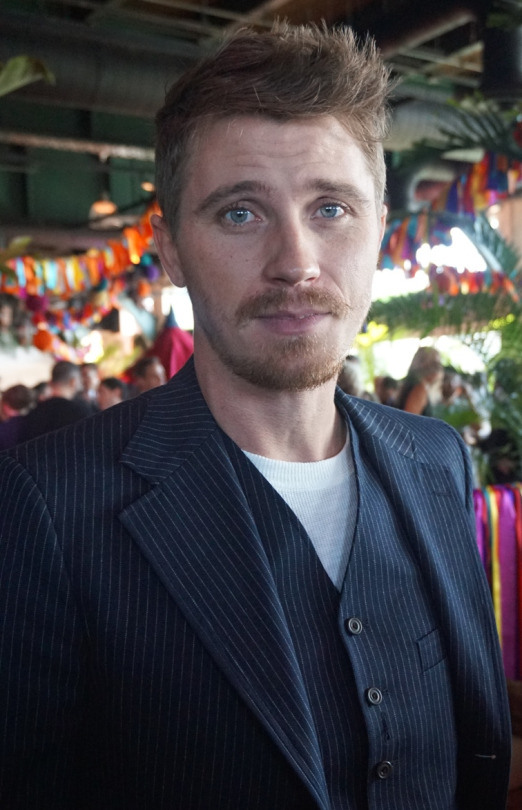 Garrett
Hedlund:
I had a fight sequence that lasted four weeks that was on a trampoline.
I'm still trying to make sure my brain is still positioned right in my
skull. Same thing, when I first met with Joe, it wasn't in the
script. There was a fight sequence but he said, "I have this idea. My
son loves trampolines. How are you on the trampoline?" I didn't know if
it was my job but then I said, "Joe, I'm really great, I can do flips,
backflips." My opposition is played by Tae-Joo Na, one of the top
martial artists in South Korea, so I had my work cut out for me in that
scene. As difficult as it was at times, I still had fun. I wanted to be
in one of those slapsticky things where the guy that appears to be in
control and has the upper hand is just getting the shit beat out of him
in a very comedic way. I love what stunt choreographer Eunice Huthart
had done with it. It was awesome and wonderful.
Garrett
Hedlund:
I had a fight sequence that lasted four weeks that was on a trampoline.
I'm still trying to make sure my brain is still positioned right in my
skull. Same thing, when I first met with Joe, it wasn't in the
script. There was a fight sequence but he said, "I have this idea. My
son loves trampolines. How are you on the trampoline?" I didn't know if
it was my job but then I said, "Joe, I'm really great, I can do flips,
backflips." My opposition is played by Tae-Joo Na, one of the top
martial artists in South Korea, so I had my work cut out for me in that
scene. As difficult as it was at times, I still had fun. I wanted to be
in one of those slapsticky things where the guy that appears to be in
control and has the upper hand is just getting the shit beat out of him
in a very comedic way. I love what stunt choreographer Eunice Huthart
had done with it. It was awesome and wonderful.
Levi, was
it challenging looking at Hugh in that get up? Were you really afraid?
Levi
Miller:
Yes, Blackbeard's character is very intimidating, but Hugh is lovely.
Blackbeard was played brilliantly. Challenging moments-wise, the most
challenging day was the first day of filming, where I was underwater for
two days straight. The first day I didn't have the idea of the whole
underwater part of it. I had my eyes open for the movie the majority of
the time underwater. By the end of the day my eyes were just bulging
out. My eyes were very sore. Then the next day I learned to close my
eyes between takes.
With so
many roles to choose from, did the cast feel any pressure playing these
classic characters?
Garrett
Hedlund:
I wanted some pressure to take the job.
Levi
Miller:
No you didn't!
Rooney
Mara:
I really wanted to work with Joe, but I also wanted to do a movie my
family could see, where I'm not taking my clothes off or getting
horribly abused by someone. I grew up loving fairytales and Peter Pan.
It was getting to go to work every day, not take yourself so seriously
and just play make believe. It was something really different for me. It
was something I really wanted and needed to do.
Garrett
Hedlund:
I'm in complete agreement. I hadn't foreseen myself being in a film like
this until I met with Joe. Some of the material we focused on Hook and
the evil side of Hook that everyone knows and loves, it was quite dark
material. But Joe would ask me to be goofier with it and do a maniacal
giggle. I was breaking through this barrier. You always feel like people
are watching you all the time, so you try to hold back and resist. Joe
wants the exact opposite, and I hadn't really done a film like that
before. To always be asked to be bigger and larger than life, after each
take of exercising these aspects we'd just die laughing in the room
together. I think my laughs were as maniacal as he asked.
It's like Rooney said: You do these darker
films and you're sitting in the trailer and you're stressed. You're not
eating. You're not sleeping. Why not have an experience where you film a
film and you have fun? Our souls need that. It's refreshing. I never had
that before. We'd have these long days and there are these massive sets
where they made a zeppelin and stuff and it conveyed the same
attitude. You saw all these kids and their faces light up when they're
on set. 200 extras dressed up as natives come onto the set and make it
their home. You see them loosening up. Joe would play music between
takes. Joe had worked with a lot of the crew members before. [They] were
familiar with this to a degree and got into it immediately and everyone
loosened up. There'd be 300 people dancing in the native village between
takes. This is what we do this for.
Hugh
Jackman:
I'm glad you said that. It didn't feel as pressured as a lot of these
big movies usually do. Of course there's pressure. We're all runners,
even Levi. We all understand. It's a lot of money, it's a beloved
story. Joe just shouldered all that to leave us crew and actors to feel
free to play. I've never been, but it was a little like what I imagine
The Burning Man Festival is like. The other thing I want to mention is
Levi, because he's amazing. It's his first film, and if there's ever
going to be pressure, imagine doing your first film and walking into
that; the biggest set that had ever been built in England. It was
massive. But with Joe and Levi at the helm it was fun, it was make
believe, it felt like that. You couldn't act opposite of Levi without
getting infected with that sense of "can you believe we're getting to do
this?" This sense of joy. That's what it was. I really take my hat off
to these two guys, particularly Joe.
What did
you pull from your own childhood for you to make this image of Peter
Pan?
Jason
Fuchs:
My first childhood memory of the story was [the Steven Spielberg film]
Hook and then the Peter Pan animated film. So I had all
these ideas of what Peter Pan was like, but I really wanted to
experience what Neverland was like through Peter's eyes. There had been
so many retellings of the story and takes on it, and I wondered what it
was like for an 11-year-old boy to get taken to a world straight out of
his imagination? Is it greater? Is it scarier? More exciting? That got
me excited to create my own version of Peter Pan that was organically
connected to the one in the book, but also at a different place in his
life where it felt fresh and different and in some ways the stakes were
higher. He still hasn't figured out how to be Peter Pan, how to fly, and
Levi found a beautiful way of portraying that. Between Joe and Levi,
they created a unique take on the character that also felt true to the
mythology.
Joe
Wright:
I just tried to put myself, my imagination, back in my 11-year-old self
and try to see the world through his eyes. That was quite an exciting
process for me. My 11-year-old self was filled with wonder and
excitement and magic. My teenage self came and stamped all over that and
told him to be quiet because it wasn't cool. It was lovely to return to
the uncool me and not worry about that stuff. Create a world of color,
excitement and joy. And fear as well. It was a wonderful process for me,
and feels, weirdly, like a very personal film for that reason, despite
this huge, great production juggernaut thing that surrounds it. It feels
like a tender, small film.
What were
you thinking about with the backlash over the alleged whitewashing of
Tiger Lily and people's preconceived notions of these characters?
Joe
Wright:
When I first started considering the film and the world of Neverland
before considering Tiger Lily's casting, I thought about the community
she is part of. I didn't want to make them one specific nationality. The
idea of Tiger Lily as Native American comes from Disney's cartoon, not
from Barrie's source material. Barrie is kind of non-specific about
Tiger Lily and her community's race, so I decided trying to make the
tribes and natives be native of planet Earth and indigenous of the
globe. That felt like a kind of opportunity then to have these people
come together to fight Blackbeard, who's the kind of colonial villain
who wants to overtake their land. Then when I got to thinking about
Tiger Lily's casting I thought I could cast her from anywhere. I had a
lovely time meeting actresses from India, and China, and Japan,
Africans, African Americans, Native Americans, First Nation Australian
and so forth. Tiger Lily is described as being a warrior princess and
there's something regal about Rooney and something scary about her too.
She's quite badass, you don't want to mess with her. Therefore she was
the greatest actress that had the qualities described in the screenplay
and that's why I cast her. I think people's concerns, which I fully
understand, about the casting of a caucasian actress in the role, are
justified until they see the movie. When people see the movie they'll
understand what I'm trying to do.
Rooney,
you are in some very anticipated movies this year like
Carol, how does your performance
compare in respect to these films?
Rooney
Mara:
I have a hard time watching anything I'm in until five years later. I
don't have good perspective on myself. I'm super hard on myself and
critical and when I watch things I'm in. I only see the things I wish I
hadn't done. I'm never pleased with myself until years later, and then
I'm like "oh yeah, that's not bad."
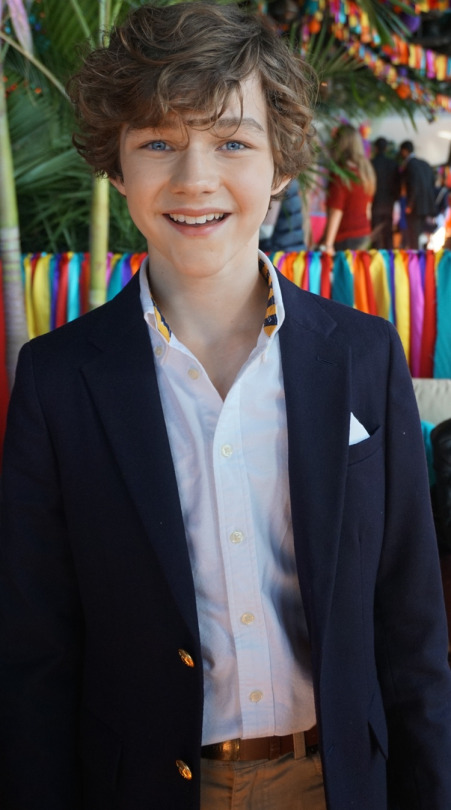 Levi,
what was it like to see yourself on the big screen?
Levi,
what was it like to see yourself on the big screen?
Levi
Miller:
It was weird. I liked it. I enjoyed the film of course, but it was a
weird feeling seeing myself on this gigantic screen and after seven
months of filming... I liked it.
Rooney,
What is it like working with young actors? In your earlier film
Trash
you also worked with kids.
Rooney
Mara:
I love it. A lot of people really don't like working with children or
younger kids. I also worked with two little girls on another film. I
really love it. Working with Levi was one of the great joys of working
on this film. He's so open and curious, and he has no cynicism and made
it so easy for us to come in and use our imaginations and play make
believe. I find working with children, they don't know how to lie yet,
they're just finding the truth in whatever they're doing, I get a lot
out of acting opposite of them. The experience acting in Trash
was very different from any other experience I had working with children
because there was a language barrier. I love it.
Tiger
Lilly has a lot of really intense fight scenes. What do you think about
what girls would think seeing it?
Rooney
Mara:
For me it was a reason I wanted to do this film. Like I said, I grew up
loving fairy tales, but unfortunately in a lot of them the female
characters end up being some sort of victim or damsel in distress. Tiger
Lily wasn't like that at all. In some ways she was more capable than the
boys. She could fully take care of herself and then some. I loved and
appreciated that about the script.
Joe
Wright:
One of my favorite audience responses has been from girls coming to see
the movie and their favorite character is Tiger Lily. When asked what
they like about Tiger Lily they respond "because she can do anything."
I'm always trying to portray as strong and powerful and those are the
kind of women I like, so they're the kind of women I like in my
movie. It was a brilliant idea of Jason's to make that final battle so
much about Tiger Lily and Blackbeard. I liked the fact that Peter is
pretty brave in what he does, especially when he goes to save Hook, but
Hook's pretty useless, really. I liked seeing Garrett beaten up, that
made me laugh, so it all worked out just fine.
What was
the thought process in writing her?
Jason
Fuchs:
I like writing strong female characters. I grew up with a strong Jewish
mother who never accepted the first table given to her at any
restaurant. The Tiger Lily character, in every iteration I've seen her
in, felt under-served. She's usually serving someone else's goal or
quest and reacting to events. So I was excited by the idea of a Tiger
Lily that was very in charge of her own destiny, who had a very clear
objective, and would do whatever was required to see it through. I think
that Rooney's Tiger Lily is the bravest character throughout the film.
Peter is discovering bravery, he's discovering his courage. When Peter
is brave it's because he's having fun and doesn't think before he
acts. Tiger Lily is wise and knows the risk of what she's getting into
and still does what she feels she has to. I was excited by that and by
having Rooney play the role, because I don't think there are a lot of
actresses that can carry that role with such strength and physical
agility.
Did you
do any research in handling the role of Peter Pan by look at the work of
any past actors who played him?
Levi
Miller:
This is an origin story. It's something that had never been seen before.
I had seen the Peter Pan films previous to Pan, but I
didn't re-watch them. It's different. It's Peter, the boy who can't grow
up, and who can fly, but it's a new idea. It's him before he becomes
Peter Pan, so he can be anything. He can be a boy who's living in an
orphanage. I discovered the boy through rehearsals. We had a sheet we
wrote down the qualities of Peter on. He has all these personalities.
He's quite selfish. Even though he's the brave hero of Neverland, he's
definitely selfish, because what he's doing is all for his own
achievement at the end. Of course there's the sweet thing of finding his
mother, but it's for himself and I was excited to play with that.
Will
there be another one?
Jason
Fuchs:
I'm
hoping people respond well to this. I loved writing Neverland and seeing
where these characters go. At the end of the film there's a lot of the
mythology left untold and unanswered questions about Hook, so if we're
lucky enough to have the opportunity to do another there's a lot of
stuff we'd like to put between our film and where Barrie's book picks
up.
Did
anyone take anything from the set?
Joe
Wright:
I have Blackbeard's sword.
Hugh
Jackman:
I stole that earring with a pearl... for my wife.
Garrett
Hedlund:
I took Levi's map. There's a part where Levi finds a map in a crashed
pirate ship and I thought it looked exciting.
Levi
Miller:
I got to keep the Pan pipe, which was awesome. That was a cool thing to
take.
Garrett
Hedlund:
I kept
Tiger Lily's outfit.
Joe
Wright:
He wore it one day on set.
Rooney Mara:
We have a picture. (chuckles)